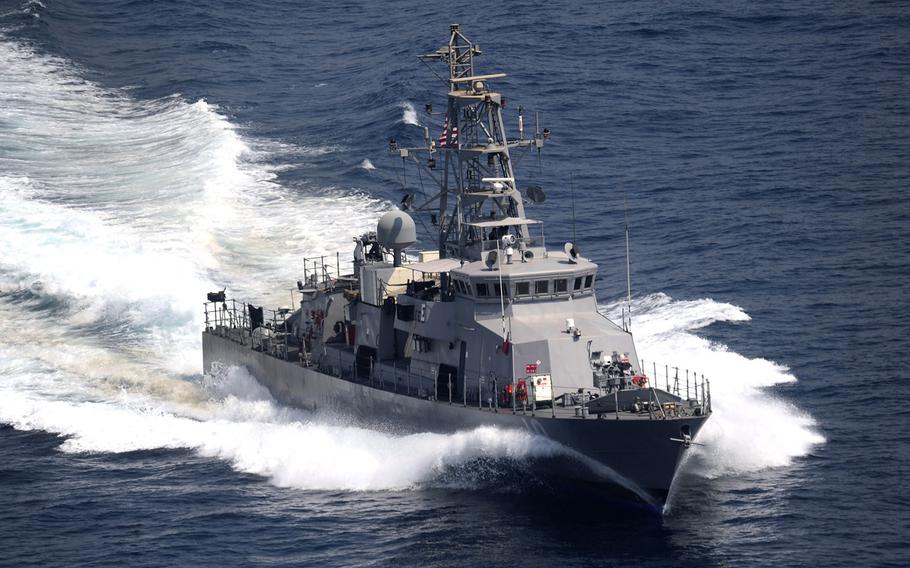
A 2011 file photo of the coastal patrol ship USS Firebolt during an exercise in the Persian Gulf. (Walter M. Wayman/U.S. Navy)
WASHINGTON – An American warship was forced off course after seven Iranian fast attack boats swarmed it Sunday in the central Persian Gulf, continuing a recent pattern of Iranian harassment of U.S. military ships, a Pentagon spokesman said Tuesday.
One of the small Iranian Revolutionary Guard Corps watercraft stopped directly in the USS Firebolt’s path where it turned to face the American coastal patrol ship, said U.S. Navy Capt. Jeff Davis, a Pentagon spokesman. After several attempts at radio communication, the Firebolt was forced to maneuver to avoid a collision. The American ship came within about 100 yards of the boat.
It was at least the fifth time in the last two weeks the Revolutionary Guard boats, controlled by hard-line, anti-American clerics close to Supreme Leader Ali Khamenei, harassed U.S. Navy ships. In one of those incidents, another American coastal patrol ship, the USS Squall, fired three warning shots before the Iranian boats fled. In the previous encounters, the closest the two sides had come was about 200 yards, military officials have said.
“This is clearly a pattern, and it is one we are not happy about,” Davis said on Tuesday. “We would like to see this type of behavior to stop.”
In Sunday’s incident, at least three of the Iranian boats sped within 500 yards of the Firebolt, tailed the ship in “an unsafe and unprofessional manner,” and left the area once it changed course. It was not immediately clear how long the incident lasted.
The Iranian boats were clearly armed, Davis added. Crewmembers aboard the vessels were manning machine guns, but the weapons were never aimed at the Firebolt.
“We would like all players operating in international waters to do so professionally,” Davis said. “When they don’t act professionally, there is risk of collision or accident, or risk of miscalculation or unnecessary escalation.”
Just last week, Gen. Joseph Votel, head of U.S. Central Command, called out the recent actions by Iran’s Revolutionary Guard, and warned that continued provocations could cause “an international incident.”
“If they continue to test us, we are going to respond, and we are going to protect ourselves and our partners,” Votel said during a visit to the Pentagon. “Ultimately, we will prevail here. I’m very, very confident of that, and we certainly don’t want that to come to pass, and that’s why I call on them to act in the professional manner that they espouse to act, particularly in international waters.”
The Iranians have typically ignored the Americans’ stated concerns about such actions, saying they have the right to investigate or confront vessels near their shoreline.
The Navy estimates about 10 percent of all its interactions with Iranian military vessels since the beginning of 2015 have been unprofessional.
dickstein.corey@stripes.com Twitter: @CDicksteinDC